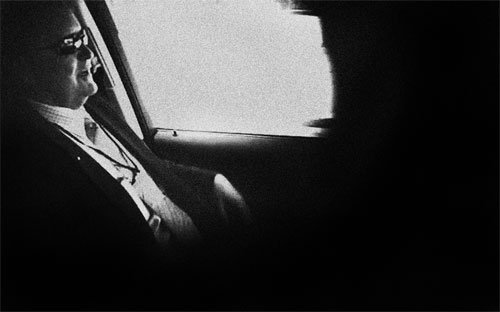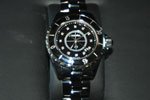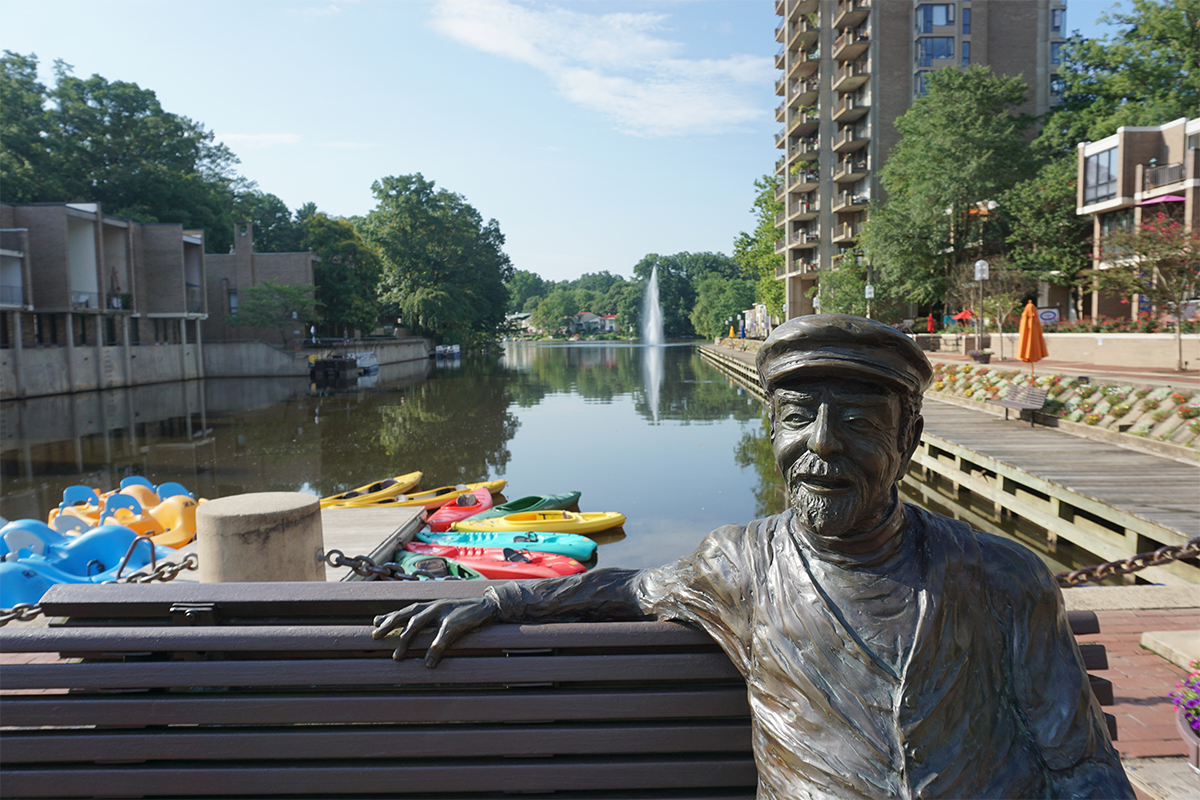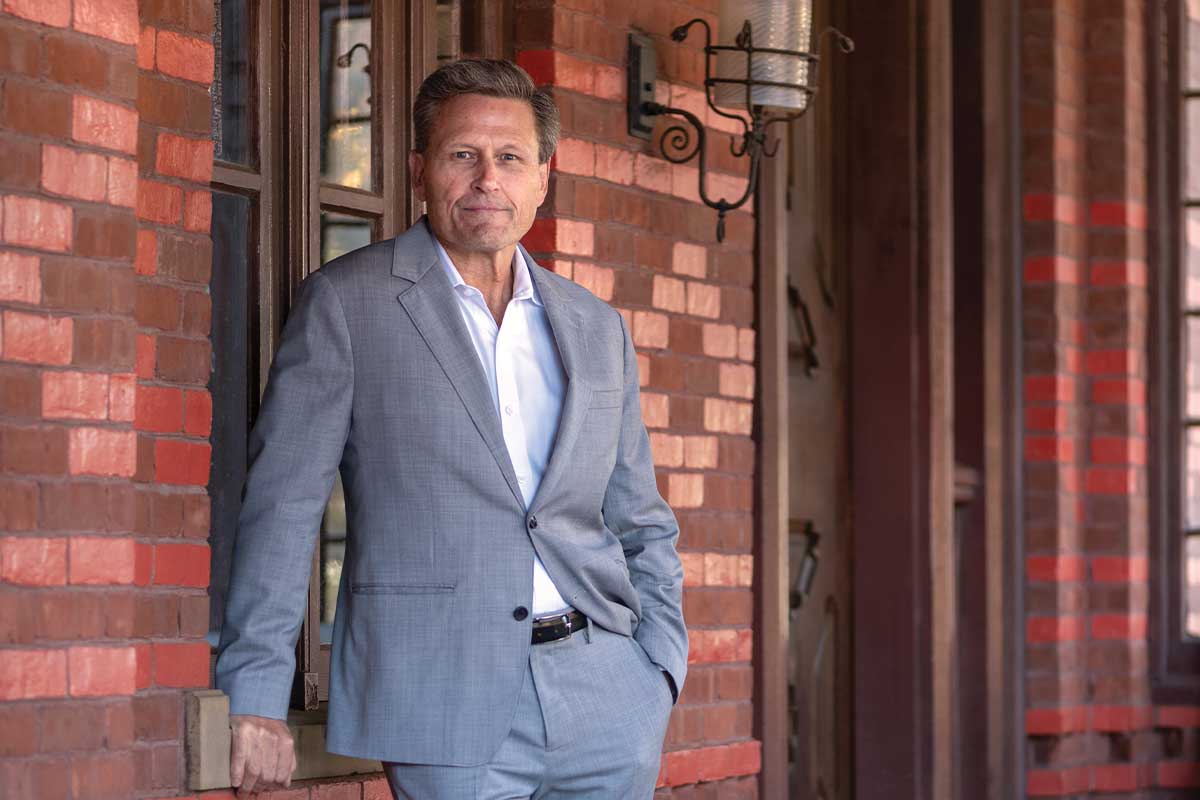Inside the largest contracting scam in American history.
By Jordan Smith

Jay Greenberg has been with the FBI for seven years. He is a Special Agent in the Bureau’s Washington Field Office.
In late February 2011, Greenberg had just finished a huge public corruption case. He was exhausted from working nights and weekends, which involved extensive wiretaps and undercover work. His personal life had suffered. True, his work had proved fruitful: Ted Loza, a former chief of staff to D.C. Council Member Jim Graham, pled guilty in the case, and in June of that year Loza was sentenced to eight months in prison for bribery. But he told his bosses he wanted nothing more to do with public corruption cases. They agreed.
On March 2, Michael Atkinson, an assistant United States Attorney who works fraud and public corruption cases for the U.S. Attorney’s Office in D.C., asked Greenberg and an agent from the Small Business Administration’s Office of Inspector General to come by his office the next day at noon. Greenberg was on parent duty that night. He agreed to meet with Atkinson, but told him he needed to be out of the office at 4 p.m., no matter what.
After the meeting with Atkinson and the SBA, Greenberg didn’t get home until after midnight. Instead, a Great Falls resident named Alex Cho revealed details to them about what was one of the most brazen corruption schemes in the history of federal contracting.
“It did not start the way it finished.” That’s the judgment of Steven D’Antuono, the supervisory special agent for the FBI overseeing the investigation. In September 2009, one of D’Antuono’s agents got a tip suggesting that a small business was committing fraud. Under federal contracting laws, businesses headed by veterans with disabilities receive preferences—all other things being equal, a contract will be awarded to a company headed by a disabled vet than one that isn’t. Small as they sound, those preferences can make the difference in which companies receive tens of millions of dollars in government contracts. The documents the bureau received suggested that Rockville-based MED Trends, Inc. was not headed by a disabled veteran—even though MED Trends had been granted that status by the government.
The FBI began working with the U.S. Attorney’s Office and Howard Arp, Chief Investigator at the Small Business Administration (SBA). Together, Greenberg, Arp and Atkinson began combing through the records of MED Trends, which provided IT work for the federal government. They went to the government agencies that had awarded MED Trends millions of dollars in contracts. As part of the lucrative but complicated government contracting process, companies have to prove they can do the work effectively. One way of doing so is by providing references for past performances on prior contracts. The agents noticed that some of MED Trend’s references were to non-existent people at existing companies—and some were to people at completely fictitious companies.
One name that kept popping up was Ted Hallas. Hallas was the executive vice president of Chantilly-based Nova Datacom, a company that provides IT to the government and other clients. Agents approached Hallas about providing false references, but they believed that MED Trends’ owner Roger Malik was their primary target. “That was where the money was going,” recalls Atkinson.
Hallas told agents he had received nothing in return—he was simply doing favors for his friend, Malik. But he agreed to cooperate with the investigation. While FBI and SBA agents listened in, Hallas called Malik from a conference room in the U.S. Attorney’s Office building and told him there was a problem with the references. But Hallas’s face soon went “ashen white,” recalls Atkinson. Malik had told Hallas the false-references went two ways. Hallas was forced to admit that he, too, had benefited from the fraudulent contracts. He agreed to finally come clean.
Nova Datacom was now being investigated alongside MED Trends. Hallas told the FBI he wasn’t working alone—he was being helped by Alex Cho, a South Korean man who was the company’s chief technology officer but effectively ran the company. Cho and Hallas had worked together in the past and known each other a long time, says Arp. Hallas agreed to wear a wire to record Cho. They met inside Cho’s car. “The purpose of the meeting was to get Cho to admit that he had been in on falsifying the references,” recalls Atkinson. But it was an awkward conversation—Hallas just wasn’t good at hiding what was going on. The conversation was so awkward, in fact, that Cho realized that Hallas was wired. Cho sent a text message in Korean to a man named Thomas Kwon—translated, the message said, “I’m fucked.”
The investigation expanded to a working group to include the Internal Revenue Service – Criminal Investigation, Defense Criminal Investigative Service and Army Criminal investigation Command with SBA and FBI. Together, they began requesting financial documents from Nova Datacom. On March 2, 2011, they sent a third request over. That evening, AUSA Atkinson was walking home from the metro station when he received a phone call from a lawyer, Steven McCool. “I’ve got some information about the Nova Datacom case that can greatly expand your investigation,” Atkinson recalls McCool saying. Atkinson didn’t know who McCool represented, or what he knew about the case—McCool only said that he had crucial information.
The next day, McCool and Cho showed up at the U.S. Attorney’s building—in the same room where Hallas had made his original call to Malik. Alex Cho provided the crucial links in the case. It was Cho who told investigators about the other key figures in the scheme. Cho was talking so much that investigators had trouble keeping up. He told them that the deals—which included payoffs to government officials—totaled somewhere near $10 million. It was far bigger than any of the agents had known. “Although we had evidence that Nova Datacom was involved in more than just false past performance references, Cho’s information took the investigation to a higher level at warp speed,” says Atkinson. Arp was blunter: “This shit just got real,” he told Atkinson.
ASSETS SEIZED BY FBI: (Top to Bottom) Harold Babb’s home in Sterling and Porsche, Kerry Khan’s Audi, truck; Khan’s watch, home, Infinity and condo.
The story Cho told them was amazing. In 2006, Michael Alexander, who lived in Woodbridge and worked at the Army Corps of Engineers, had agreed with his colleague, Alexandria resident Kerry Khan, to work to steer Army Corps contracts to companies that would reward them with bribes. Alexander and Khan had accrued so much trust at the Army Corps that they effectively acted unsupervised. (At the same time they were stealing millions of dollars from the government, they got the highest possible performance ratings from their supervisors).
Nova Datacom began receiving contracts from the Army Corp in May 2007. Each month, Cho was meeting with Alexander and giving him thousands of dollars in cash. “That’s the only time I’ve heard something like that happening,” says Greenberg. “I’d worked in public corruption for six years at that point, and except for the Congressman Jefferson case, I’d never heard of bribe payments totaling these figures. Most bribe and kickbacks are in the $50 case or most hundreds. That’s a huge number.” SBA Chief Investigator Howard Arp agrees, saying “the pure extent and egregious nature of their greed” was remarkable.
Cho also talked about another man, Harold Babb. The Sterling-based Babb worked at EyakTek, which provides IT to the government. Cho and Khan were inflating quotes for the work Nova Datacom performed, and submitting the invoices to Babb. After subtracting its profit margin, EyakTek was paying the remainder to Nova Datacom, its subcontractor. Then, Cho was paying some of the money back to Khan, Khan’s son Lee, Alexander and Babb. Cho was the banker for the whole group. “Instead of going to the ATM, these guys went to Alex Cho,” as Greenberg says.
These were not small sums. EyakTek’s invoices were inflated by $20 million. Cho was giving that money right back to the other members of the gang. Kerry Khan was the big winner: he took home $18 million in cash, cars, home renovations, Rolex watches, airline tickets and hotel rooms. Khan’s son, Lee, was given money to hide the traces of the spending. Michael Alexander got more than $1 million in cash, Chanel and Cartier watches, an Audi A4 and airline tickets. Babb got more than $700,000 in cash along with airline tickets.
It was amazing access. “Generally, any great case you’re going to make is based on a cooperator who agrees to work with you, because they’re the ones who have access to the whole criminal conspiracy,” says Greenberg. But the sheer amount of the bribes Cho was paying was problematic for the FBI. “They were numbers never before seen in the nation,” says Greenberg. The next day, Alex Cho was due to give a $15,000 bribe to Alexander, part of the regular payments. Getting $15,000 in a couple of hours to dispense to crooks is not an easy thing for the FBI, regardless what is shown on HBO. Investigators knew that they were never going to see a lot of that money again.
In addition, the law says that accepting bribes on multiple occasions is worse than accepting just one—even if the total amount is the same. So splitting the money would make it easier to prosecute Alexander, when the time came. The FBI was also testing Cho, to see how good he was. Cho would have to provide $7,500 from his own slush fund to Alexander that next day, while he was wearing an FBI wire. If all went well, the FBI would give Cho the other $7,500 to hand over.
Even some investigators, in time, began to feel bad for him. “His was a sad case,” says Atkinson. When Cho met in his car in Tyson’s Corner with Alexander around noontime, a team of FBI and SBA agents were in cars watching. Cho apologized for having only half the money. Alexander was surprised. But he never suspected a thing. He stopped at a bank to deposit some of the cash, and he went right back to work.But Cho had never missed making a payment. Might Alexander suspect something when a payment was missed? It turns out that Alexander was a mopish character. At each of his meetings with Cho, Alexander would discuss his family and professional woes. He told of how he was going to spend the money: on his wife, who had cancer but with whom he was having difficulties, and to prostitutes he was procuring.
For three months, investigators listened to the group. They got to know them. But they were worried about Cho—informants often stop cooperating with law enforcement. “It’s very stressful for them,” says Greenberg. “They have to inform on the people they were in secret alliance with.” Moreover, investigators soon realized things weren’t making sense. They were hearing things in the wiretaps that were different from what Cho was telling them.
They quickly realized why: Alex Cho was lying to them. In February 2011, just before he met with the FBI for the first time, Cho had met with Nova Datacom’s owner, his sister, Min Cho; and with a Vienna man, Thomas Kwon, founder and chief financial officer of Avenciatech, yet another corrupt contractor, based in Annandale. Cho told Min Cho and Kwon that he was going cooperate with the FBI. He wanted to protect them, telling them he was going to withhold certain information from investigators.
While Min Cho watched, Kwon then physically broke a computer hard drive in order to destroy evidence. Until June 2011, the three would meet following Alex’s debriefings with law enforcement and discuss what Alex had said. On one occasion, in August 2011, Cho met with Thomas Kwon and pointed to his lapel to point out that he was wired. “Cho was a highly effective cooperator—and highly obstructionist at the same time,” Atkinson says.
In September 2011, Cho pled guilty to bribery and fraud, under seal. In November 2011, a few days after learning about Cho’s act of obstruction with Kwon, prosecutors moved to revoke Cho’s bail. The judge revoked his bail and Cho was taken into custody at D.C. Jail. “But for the bribery, he could have had built a successful company—he was very smart,” says Arp. “But greed takes over at some point and you get caught up in it and you can’t stop.”
For the most part, those Cho recorded never suspected he was wired. The one exception was Babb sent an email to Kerry Khan, saying, “Alex is asking too many questions.” Which was true—the FBI was telling him what questions to ask. Finally, in September 2011, Harold Babb, Michael Alexander and Kerry Khan and his son, Lee, were indicted under seal. Their indictments showed what investigators found in their months of monitoring: the four men were charged with bribery and kickback payments in excess of $20 million. And, according to the indictment, they had plans to steer the $780 million government contract to Nova Datacom.
October 4, 2011 was the big day. It was arranged that Babb, Alexander and Kerry Khan would believe that Cho was coming to visit them, separately. Hundreds of law-enforcement agents were involved in the takedown. There were searches of houses, four arrests, a dozen interviews—all were done simultaneously, to recover both evidence and assets. Sixteen properties, three luxury vehicles, 29 bank accounts and over $5 million in cash were seized.
Khan was the big catch—he had taken the most money and was the mastermind behind the entire plot. On the day he was arrested, Khan was waiting for Cho to bring danishes over so they could do an online transfer of $6 million. He was living at a condo on Seminary Road in Alexandria. Cho and Khan had met at the condo many times to discuss their schemes. Indeed, hundreds of thousands of taxpayer dollars had gone to refurbish that condo. Investigators went to the door of Khan’s condo and gave Cho’s secret knock. Khan answered the door. He had just shaved but not showered—he answered the door in his boxer-briefs. He didn’t say much as investigators handcuffed him.
Harold Babb was described as an isolated, lonely, pathetic man—he had few friendships or family, and other people, including his fellow thieves, didn’t show him much respect. When agents arrested him, Babb passed out, and his hair piece fell off. Agents had to help resuscitate him. When he came to, the first thing he did was reach for his wig. Babb was also described as a schemer, playing every single angle that could be played—against his employer, against the government, against his co-conspirators.
Michael Alexander was arrested at his office, which happens to be right across the street from the FBI’s Washington Field Office. “This is a joke, right?,” he asked. It wasn’t, and he then provided a full confession.
It is extremely unusual for white-collar criminals to be held in prison without bond. But the size of the sums at stake—these men had international assets—meant that they posed a significant flight risk. Kerry Khan and Lee Khan were held based on their threats to kill a potential witness, Ferose Khan, who was their son and brother, respectively. The four men arrested were held at the D.C. Jail— even though most of them lived in Virginia, their crimes were committed in the District.
Much of the scam has now wrapped up. In February 2012, Michael Alexander pled guilty to bribery and money laundering. He was sentenced to six years in prison.
Another contractor involved in the scheme, Robert McKinney, the president of Alpha Technology Group, pled guilty on the same day to bribery. In October 2012, Harold Babb pled guilty and was sentenced to 87 months in prison, and ordered to return $200,000, and a 2007 Porsche. In March of this year, Min Jung Cho—Alex Cho’s sister—was charged with bribing Khan and Alexander. Alex Cho pled guilty and his attorneys will meet with a judge on April 25, 2013—his sentencing date hasn’t been set, but he faces possible deportation and over 30 years in prison. Kerry Khan pled guilty and his sentencing is scheduled for July 11, 2013. Others are yet to be charged—the case is still unfolding.
For his part, Jay Greenberg is hoping to be done with cases like this for a while. “Alex Cho didn’t work nine to five,” he says. He got promoted to headquarters supervisor and sometimes even manages to get home for parent duty.
(May 2013)
UPDATE: On April 11, Nova Datacom’s former president Min Jung Cho pled guilty to federal charges stemming from the role in the bribery and kickback scheme. According to officials, Nova Datacom admitted to paying more than $15 million in bribes to three public officials in return for contracts awarded through the Army Corps of Engineers and the Department of the Army, and admitted to paying more than $790,000 in kickbacks to executives of two companies that were involved in the scheme.












